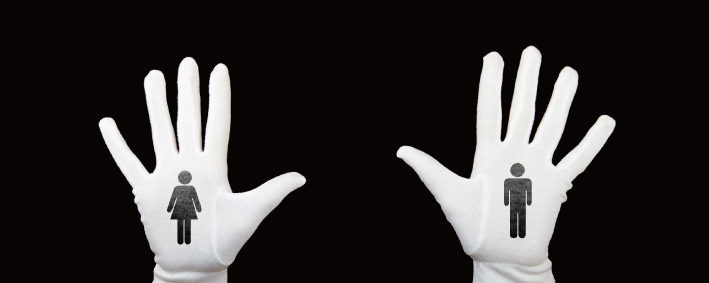 |
CCHU9007 Arts and Humanities
|
CCHU9015 Sex and Intimacy in Modern Times /
CCHU9039 Sexuality and Culture
Course Description
[This is a certified Communication-intensive (CI) Course which meets all of the requirements endorsed by HKU’s Senate, including (i) the teaching assessment of visual and digital communication ‘literacies’; and (ii) at least 40% of the course grade assigned to communication-rich assessment tasks.]
What is sexual and gender diversity? How does the experience of our own genderedness and sexuality define members of sexual and gender minorities as people, and shape our opinions about those people who do not share our experiences or who do not express their sexuality in the same ways as we do? In this course, which has the potential to be life-changing, we will look at these sorts of questions and we will do so while learning about (and in many cases meeting and talking with) people whose gender or sexuality places them on the fringes of mainstream society. People who are gay, lesbian, bisexual or asexual; transgender people and individuals who cross dress, or play with bondage, domination, use pornography, and/or are involved in commercial sex activities. In lectures and tutorials we will examine questions such as: To what extent are sexual and gender diversity biologically ‘hard-wired’ rather than learned? What is ‘normal’ in human sexuality and gender? How, in an increasingly interconnected world, are our ideas about sexual and gender diversity changing? What are the intersectionality that we can discover in the whole course of learning and how do we use these learnings to help make a better world? We expect students will come out of the course with an informed, open-minded and critical understanding of the issues covered, and be better able to join contemporary debates on sexual and gender diversity, debates that so often stir deep emotions and challenge fundamental beliefs.

Course Learning Outcomes
On completing the course, students will be able to:
- Critically evaluate concepts central to the study of sexual and gender diversity and appraise the role that society and culture play (a) in the construction of these concepts and the links and distinctions that are drawn between them, and (b) in framing actual development of individuals from sexual and gender minorities.
- Demonstrate understanding of historical changes (and cultural differences) in the ways in which sexual and gender diversity has been (and is) viewed. These are clearly evident in the visual and digital aspects of the projects as well as the original creations in the projects.
- Critically appraise the ways that ideas about sexual and gender diversity are created and transmitted (and adherence to norms is regulated) within any culture or society, and reflect upon how these ideas (including norms) frame our responses (individual and collective) to sexual and gender diversity and to the behaviour of persons belonging to sexual and gender minority groups.
- Analyze critically the impact of increasing global interconnectedness in framing ideas about sexual and gender diversity, norms for sexual and gendered behaviour, and individual and collective responses to individuals from sexual and gender minorities and this will be clearly felt and seen as well as demonstrated in their submitted works especially the digital and visual aspects of their projects that can allow the audience to also learn the clear messaging.
- Reflect on ways in which, globally, and in regard to sexual and gender diversity, humanity can reconcile a heightened awareness of cultural differences with a respect for individual differences and preferences, uphold human rights, justice and equality, and improve the well-being of humankind.
- Reflect and debate on issues of human sexual and gender diversity in an informed and rational way, incorporating an awareness of others’ experiences and perspectives and a commitment to fundamental democratic values such as freedom of speech (including expression of ideas), human rights, justice and equality.
Offer Semester and Day of Teaching
Course will be offered twice:
Section 1 – First semester (Wed); Section 2 – Second semester (Wed)
Study Load
| Activities | Number of hours |
| Lectures | 20 |
| Online course material | 4 |
| Tutorials | 11 |
| Reading / Self-study | 48 |
| Assessment: Reflective journal | 20 |
| Assessment: Quiz (incl preparation) | 8 |
| Assessment: Web presentation | 27 |
| Total: | 138 |
Assessment: 100% coursework
| Assessment Tasks | Weighting |
| Continuous assessment and task focused activities | 50 |
| Web presentation | 50 |
Required Reading
- Hock, R. (2014). Human sexuality (3rd ed.). Harlow, Essex: Pearson.
- International Commission of Jurists (ICJ). (2007, March). The Yogyakarta Principles – Principles on the Application of International Human Rights Law in relation to Sexual Orientation and Gender Identity. From http://www.refworld.org/ [Chaps. 1, 2, 4, 6, 7, 8, 10, 11, 12, 14]
- Ran, A., & Morad, M. (Eds). (2016). Mazal Tov, Amigos! Jews and Popular Music in the Americas (Vol. 7). [Chap. 12 “Queer Jewish Divas: Jewishness and Queerness in the Life and Performance of Barbra Streisand, Bette Midler, and Olga Guillot”]
- Wolf, S. E. (2003). Changed for good: a feminist history of the Broadway musical. [Chap. 6 “‘Changed for the Better’: Queer Conventions in Wicked” (p. 197), Chap 7 “‘It’s All About Popular’: Wicked Divas and Internet Girl Fans” (p. 219)]
Course Co-ordinator and Teacher(s)
| Course Co-ordinator | Contact |
| Dr B.B.R. Alegre School of Humanities (Gender Studies), Faculty of Arts |
Tel: 5208 5405 Email: brendara@hku.hk |
| Teacher(s) | Contact |
| Dr B.B.R. Alegre School of Humanities (Gender Studies), Faculty of Arts |
Tel: 5208 5405 Email: brendara@hku.hk |

